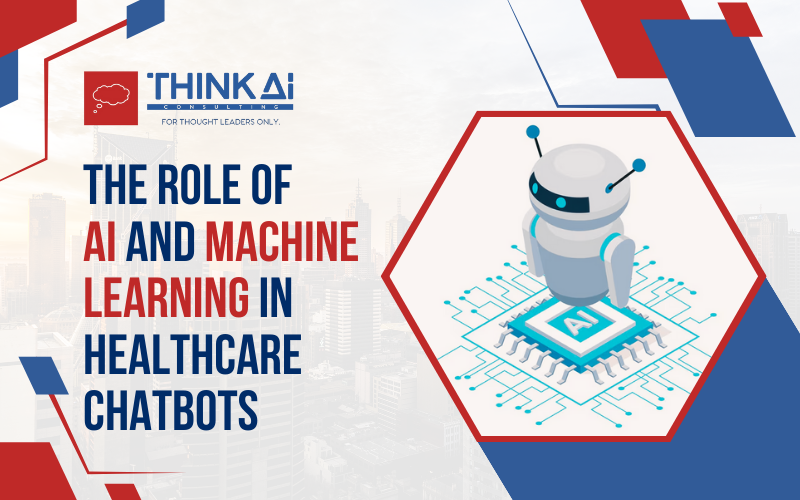Financial strain on hospitals has pushed nearly half of America’s healthcare facilities into negative operating margins recently, putting immense pressure on every area of operation, from clinical services to admissions.
Hospital staff are overwhelmed with scheduling appointments, assessing referrals, managing insurance, and tracking equipment.
The global healthcare industry is increasingly turning to automation, particularly chatbot services for healthcare, as a cost-effective way to improve operations and patient care. This move towards automation highlights the growing importance of chatbot services for healthcare.
Healthcare chatbots will hit around $499 million by 2026. Furthermore, 64% of patients are open to using chatbots for insurance queries, and 60% of healthcare professionals believe a chatbot in healthcare can help them save time.
Furthermore, Statista reports that the global AI health market was valued at $15.1 billion in 2022 and is projected to reach around $187.95 billion by 2030, growing at a CAGR of 37%. AI chatbots are set to make a significant impact on the healthcare sector, addressing the critical need for efficiency and improved patient experiences.
The Role of AI in Healthcare Chatbots
Artificial intelligence (AI) is the backbone of a chatbot in healthcare, providing the essential functionality that allows these digital assistants to interact with patients and healthcare professionals effectively.
AI empowers chatbots to understand and interpret natural language, enabling them to comprehend patient questions and offer appropriate responses. This natural language processing (NLP) feature allows chatbots to participate in meaningful dialogues, addressing patient issues accurately and efficiently.
AI also plays a crucial role in the decision-making process of chatbots. By leveraging AI algorithms, chatbot services for healthcare can analyze patient data, identify symptoms, and suggest potential diagnoses or treatment options. Moreover, chatbots can assist in triaging patients, directing them to the right healthcare professional based on the severity and nature of their condition.
The Role of Machine Learning in Healthcare Chatbots
Machine learning (ML) is a critical component that enhances the capabilities of healthcare chatbots.
In contrast to conventional rule-based systems, machine learning (ML) algorithms empower chatbots to learn from a vast array of data, progressively boosting their precision and capabilities.
By scrutinizing patient interactions, ML-enabled chatbots can identify trends and foresee user requirements, delivering more tailored and efficient responses.
Moreover, ML helps chatbots to continuously improve their understanding of natural language. This means that chatbots can comprehend and respond to a wider range of patient inquiries with greater precision.
For instance, through continuous learning, a chatbot can better understand complex medical terminology and nuances in patient queries, ensuring that the information provided is accurate and relevant. This dynamic learning process is essential for maintaining the reliability and effectiveness of chatbot services for healthcare.
Why Healthcare Chatbots Matter in Boosting Patient Experience
Speed and Convenience: 52% of patients in the US get their healthcare data through chatbots, showing growing acceptance of this technology.
Efficiency: Chatbots can relieve the strain on healthcare centers by automating tasks and providing 24/7 support, allowing staff to focus on more complex issues.
Cost Reduction: Worldwide, chatbots are projected to save the healthcare industry as much as $3.7 billion by automating various processes.
Reliability: Chatbots offer 24/7 assistance, ensuring patients can get help anytime, thereby enhancing their sense of security and reliability. Nowadays, chatbot consulting services provide live online chat facilities to assist users with their queries or connect them with human employees working at the hospital.
Data Secured: Patients can ask highly personal questions without fear of judgment, maintaining their privacy.
However, it’s crucial to ensure these chatbots are accurately trained to avoid providing incorrect or harmful information.
AI chatbots are becoming essential in healthcare, but it’s vital to address ethical concerns. It is essential for chatbots to remain unbiased, inclusive, and devoid of any stereotypes or discriminatory practices.
They should be rigorously tested to provide appropriate responses and operate ethically, especially when dealing with sensitive medical information.
Chatbot consulting services providers can provide valuable guidance in implementing and managing chatbot systems ethically and effectively.
Conclusion
AI and machine learning are revolutionizing the healthcare industry by enhancing efficiency, reducing costs, and improving patient experiences through chatbots.
As healthcare centers continue to adopt this technology, it’s crucial to ensure chatbots are developed ethically and used appropriately to provide the best possible care to patients. Want to explore more? Visit us at Think AI – Chatbot Solutions (thinkaicorp.com).

